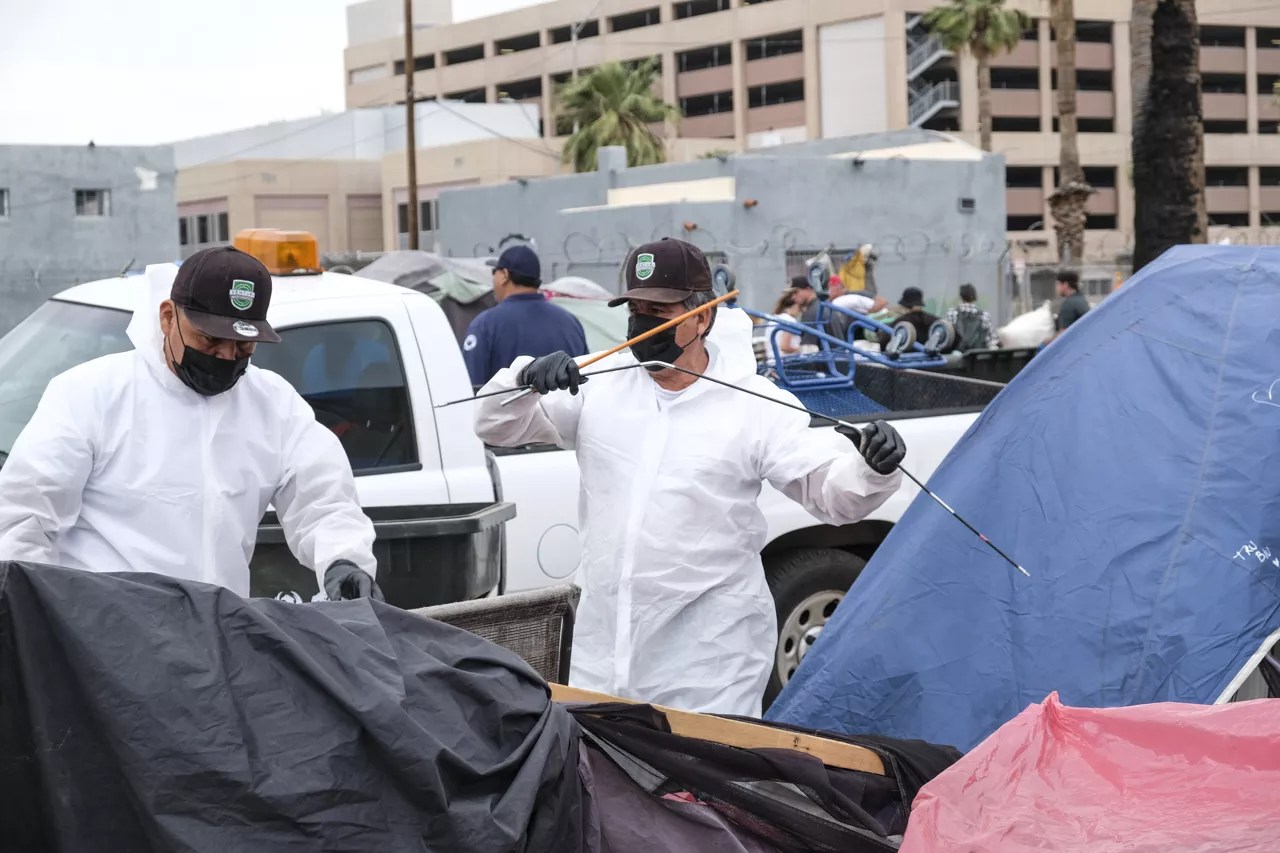
Katya Schwenk

Audio By Carbonatix
The sun had barely risen on Wednesday as city staff, service workers and street cleaning teams descended on a stretch of Ninth Avenue between Washington and Jefferson streets. The short city block is one of many in Phoenix’s sprawling homeless encampment, the Zone, and the first to be cleaned out by the city.
Before Wednesday, some 35 people were camping on this downtown street. But by 9 a.m., most tents were taken down, and cleaning teams had started to remove the remnants of human life.
The city has said that the unsheltered people living there will not be allowed to return.
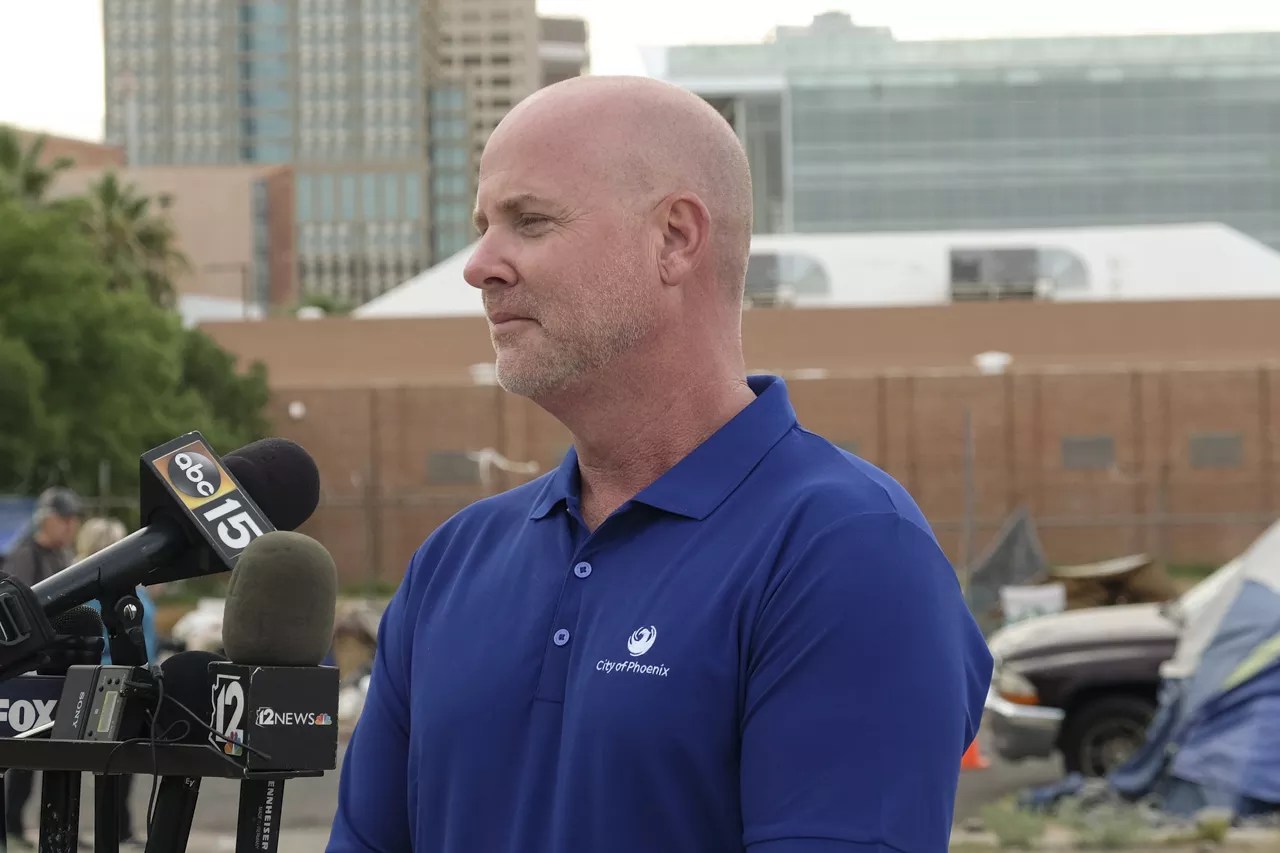
Scott Hall, deputy director of the city’s Office of Homeless Solutions, speaks to the press on Wednesday as the cleanup begins.
Katya Schwenk
Where will they go?
The sweep on Wednesday was the first step in the city’s plan to clear out the entire Zone, where people have been allowed to camp semipermanently on the streets for years. The most recent estimate put the total number of people living there at about 700, but that number previously has reached nearly 1,000.
The city’s decision to force out people living in the Zone is the result of a judge’s order. In August 2022, a group of 15 property owners in the Zone sued the city over conditions in the neighborhood, arguing that the city was violating state law by allowing the encampment on city sidewalks.
In March, Maricopa County Superior Court Judge Scott Blaney gave the city until July 10 to clear out the area entirely.
The 35 people who were forced to move on Wednesday were all offered beds in shelters or hotels, city officials said. “We have had the ability to offer everybody a bed,” Scott Hall, deputy director of the city’s Office of Homeless Solutions, said during a press conference. “It’s an array of services.”
But there are not enough shelter beds in Phoenix to house all 700 people who are facing imminent displacement from the Zone, Hall said. The four main shelters in the city were at 97% capacity as of April, recent data showed.
“That’s why the city’s putting all these resources and effort toward trying to open new beds,” Hall said.
Not everyone on Wednesday accepted an offer for a shelter bed. Antoin Jackson told Phoenix New Times that he had camped on this stretch of Ninth Avenue for about eight months with his dog.
“I told them, you know, I’d sure like a hotel room,” he said. But city staff said there were none available and instead offered him a bed at the Washington Relief Shelter. “I’d been at that shelter,” Jackson said, adding that he didn’t want to go back.
Jackson plans to move to another block in the Zone – for now.
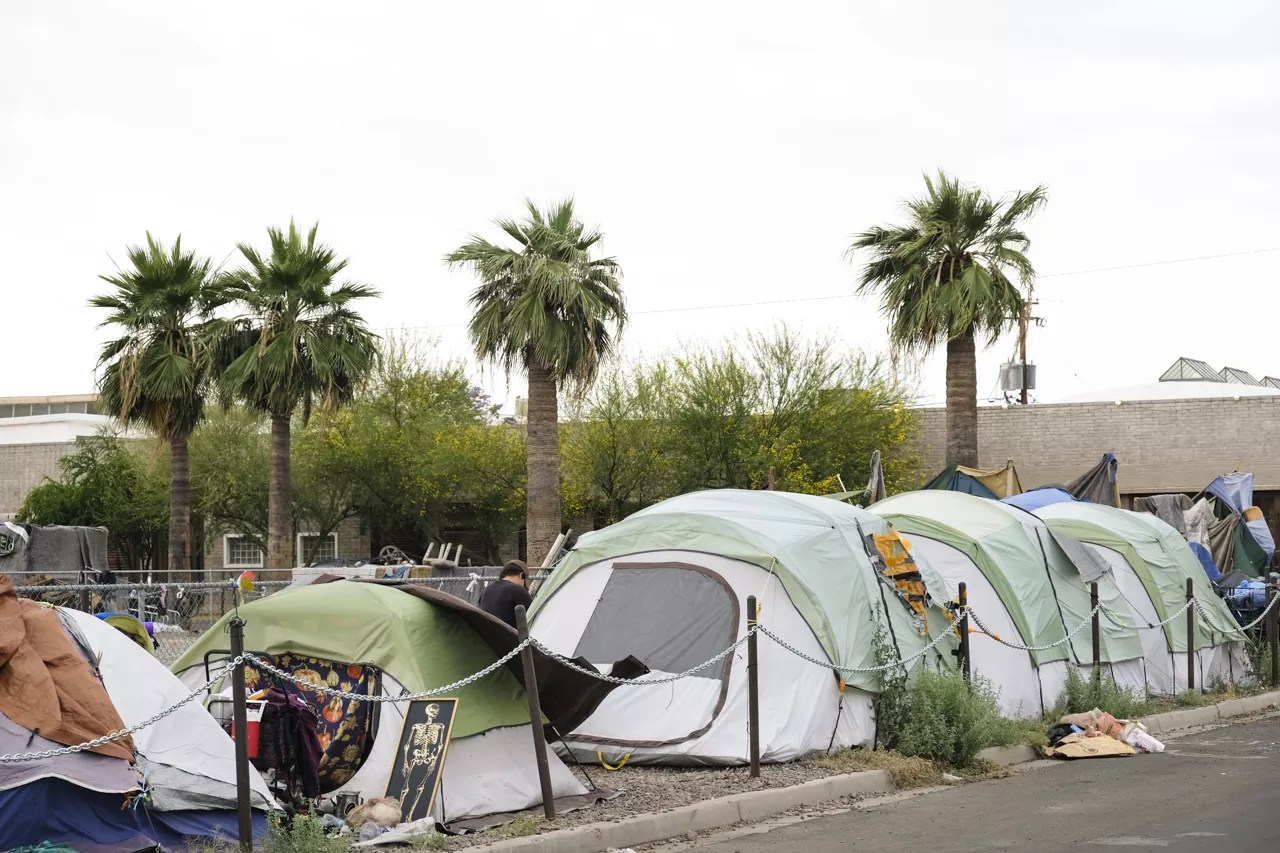
There is not enough shelter space to house everyone currently living in the Zone, city officials confirmed Wednesday.
Katya Schwenk
‘We’re just waiting to hear’
A man and woman who had been camping on the block – and who requested that New Times not use their names – said they were hoping to get into the Washington Relief Shelter. They said they preferred it to Central Arizona Shelter Services, the larger shelter near the Zone. But the city had not yet confirmed where the couple were headed.
“They said they have our names down, and we’re just waiting to hear,” the woman said, watching outreach staff take down tents as the press milled about. Her own belongings were now in city storage, she said.
Meanwhile, another Ninth Avenue camper, who provided just his first name, Don, said he expected to spend at least Wednesday night at CASS. Now 64, Don said he had been homeless for the last two years after losing his job as a truck driver due to health problems.
“I really don’t know what [the city’s] plans are for us. We all know there aren’t enough places for us to go, and the shelters aren’t good. We can’t all go there,” he said, adding that his prior experience at a shelter had proved “much worse than life” in the Zone.
Jackson, Don and the few dozen others who were forced to move on Wednesday represent just a slice of people living in the Zone. In order to offer housing to the hundreds of others who are still in area, the city is “exploring creating a safe, outdoor space with restrooms, 24/7 security, onsite services and shade,” city officials said.
Some neighbors have called for the city to use sanctioned campgrounds to house people living on the streets. But some activists worry that such sites might have worsened conditions and separate people from the service providers concentrated in the Zone.
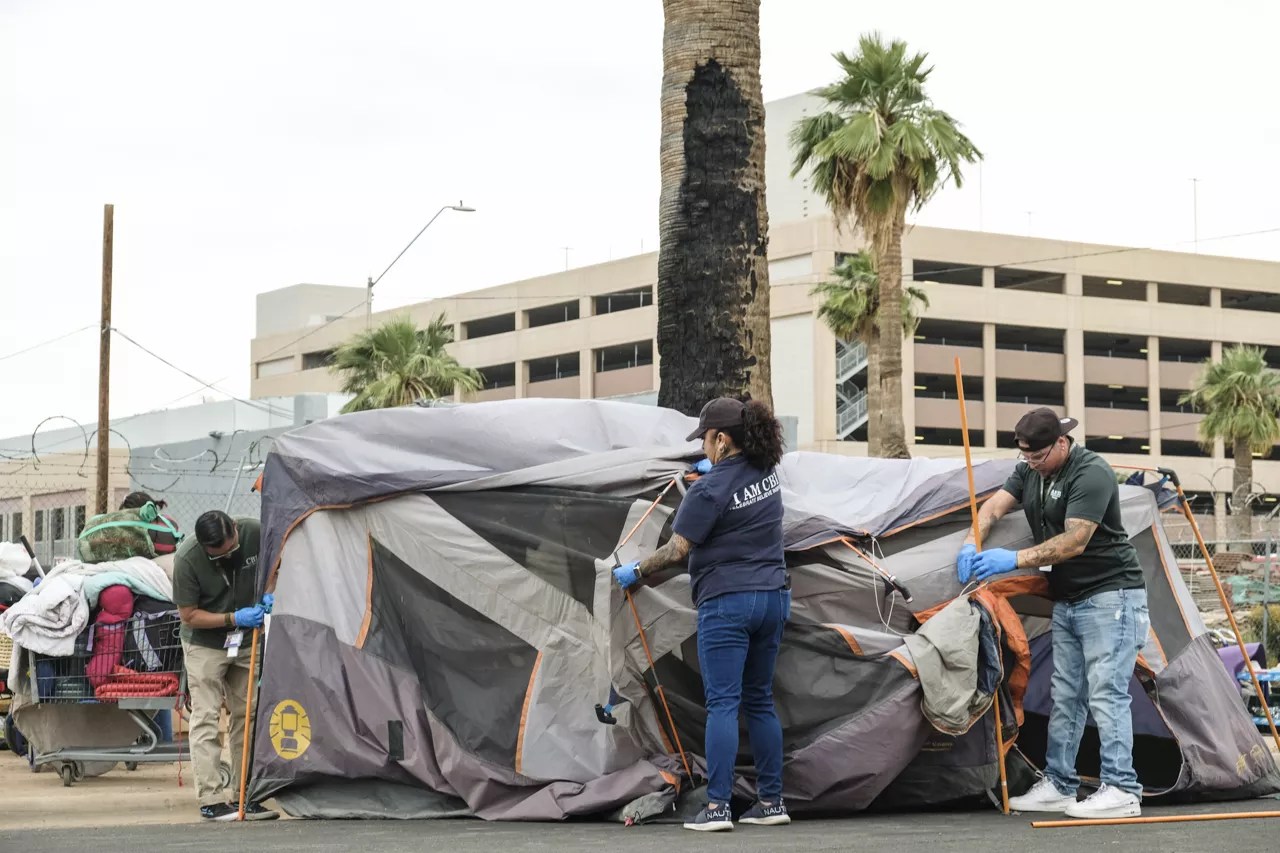
Outreach workers and city staff helped campers take down tents on Wednesday.
Katya Schwenk
Activists closely monitor sweep
As city staff and service workers helped people move their belongings on Ninth Avenue, Frank Urban and Faith Kearns watched closely.
They are both organizers with the Fund for Empowerment, a homelessness advocacy organization, and formerly unsheltered themselves. Urban and Kearns recalled that in the past, the city often seized or destroyed people’s belongings during such sweeps.
Urban said the city had taken from him “anything and everything that made life out here more bearable.”
Urban, Kearns and Elizabeth Venable, another organizer with the Fund for Empowerment, were handing out flyers to people along the block. “Know your rights during encampment cleanups,” the flyer was titled. “The city must respect your property rights.”
In November, the ACLU of Arizona filed a lawsuit on behalf of Urban, Kearns and the Fund for Empowerment over the city’s practice of destroying people’s property during sweeps. The group won an injunction from a federal judge, which barred the city from immediately destroying unattended property.
Kristin Couturier, a spokesperson for the city, told New Times that the city was tagging and storing abandoned property, and would indefinitely store property that people could not take with them into shelters.
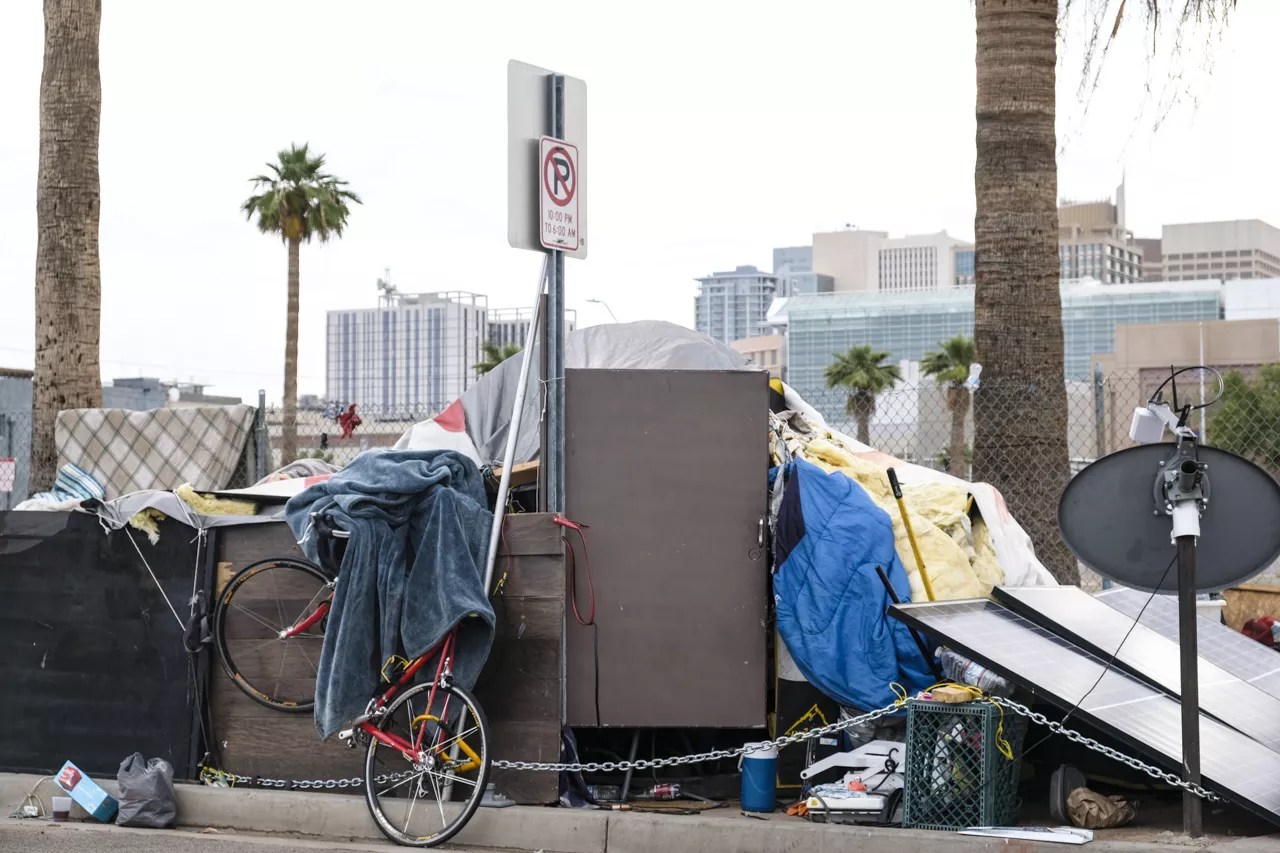
In April, the Human Services Campus estimated that about 700 people are currently living on the street in the Zone.
Katya Schwenk